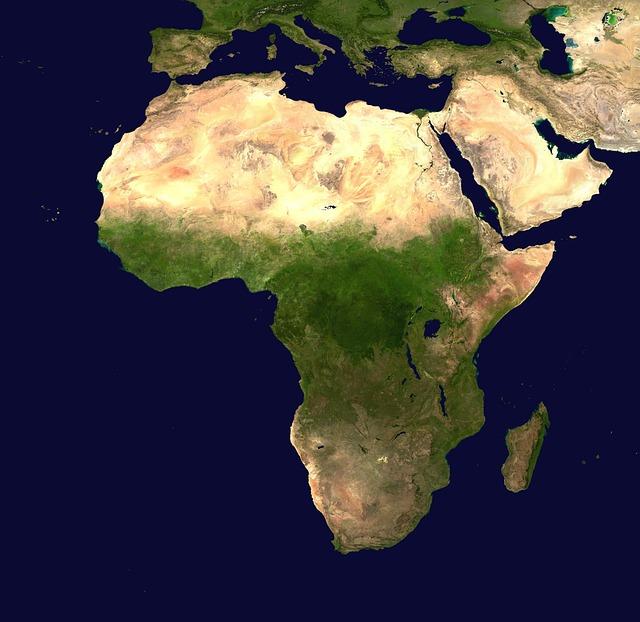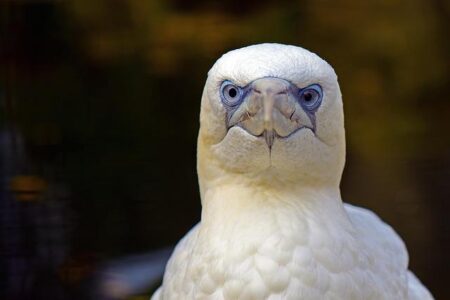Ivory Coast President Pursues Fourth Term Amid Growing Political Strife
In a landmark declaration, Ivory Coast’s incumbent leader, Alassane Ouattara, has announced his intention to run for a fourth presidential term. This decision arrives at a critical juncture as the nation faces mounting political divisions and economic hurdles. Having held office since 2010, Ouattara aims to extend his leadership beyond twelve years, sparking intense debate among opposition factions and international observers alike. The announcement raises urgent questions about the future of democratic governance in a country still healing from past unrest.
During a recent rally in Abidjan, President Ouattara underscored his dedication to sustaining national stability and advancing economic recovery. However, public opinion remains divided; while some citizens support continuity for progress’ sake, others fear that prolonged incumbency may undermine democratic principles and deepen societal rifts.
Key Elements Influencing the 2025 Electoral Climate
- Opposition Mobilization: Several opposition parties have vowed to contest Ouattara’s candidacy vigorously, demanding comprehensive electoral reforms aimed at enhancing transparency and inclusivity.
- Security Dynamics: Escalating incidents of localized violence threaten voter participation rates and could complicate election logistics across volatile regions.
- Global Oversight: International bodies are expected to play an active role in monitoring election fairness given Ivory Coast’s history of contested polls and civil conflict.
| Main Concerns | Potential Consequences |
|---|---|
| Political Stability | The risk of unrest increases if opposition voices are marginalized or excluded from meaningful participation. |
| Economic Development | The challenge remains significant as global inflationary pressures strain domestic growth prospects. |
| Civic Engagement | A sense of voter fatigue may reduce turnout amid skepticism about electoral fairness. |
Democracy at a Crossroads: Evaluating the Impact of Ouattara’s Fourth-Term Bid on Ivory Coast’s Political Landscape
The president’s pursuit of an unprecedented fourth term has intensified debates over Ivory Coast’s democratic trajectory. Critics warn that this move risks exacerbating entrenched political polarization by alienating opposition groups who view it as an erosion of constitutional norms. Concerns also mount regarding potential compromises to electoral integrity-fears include manipulation tactics or suppression aimed at silencing dissenting voices ahead of voting day.
- Deterioration in Political Cohesion: The extended tenure could deepen factional divides within society already fractured by previous conflicts dating back over two decades.
- Erosion Risks for Free Elections: Questions loom large about whether upcoming polls will meet international standards for transparency amidst allegations from opposition leaders regarding unfair advantages enjoyed by incumbents.
- < strong >Public Discontent & Civil Unrest Potential: Heightened dissatisfaction among citizens might trigger protests or civil disturbances reflecting broader demands for accountable governance and representation rights .
This complex scenario is further complicated by historical legacies including years marked by violent clashes between rival political camps during the early 2000s civil wars – events which continue to influence public trust levels today. Additionally , external actors such as regional organizations (ECOWAS) along with Western governments have signaled readiness either to mediate tensions or impose sanctions should elections be deemed illegitimate . These dynamics underscore how intertwined domestic politics remain with international diplomatic pressures .
Historical Context Factors Description < / tr >
< tr >< strong >Legacy Of Conflict And Division< / strong > Prolonged periods of armed conflict have left lingering mistrust toward centralized authority figures , fueling skepticism around extended presidencies.< / td >< tr >< td >< strong >International Scrutiny And Pressure< / strong >< td >Potential diplomatic repercussions including sanctions could affect both governance legitimacy and economic conditions.< / td > Pathways Toward Electoral Integrity: Strengthening Democratic Processes in Ivory Coast Ahead of Elections
The unfolding political developments highlight an urgent need for comprehensive reforms designed to guarantee free , fair , and transparent elections moving forward . Among recommended measures :
- < strong >Creation Of An Autonomous Electoral Commission : Establishing an independent body insulated from executive influence is crucial so all parties can compete on equal footing without bias .
- < strong >Enhanced Election Monitoring : Deploying both domestic watchdog groups alongside impartial international observers will help ensure accountability throughout voting stages . Recent examples such as Ghana ‘s successful use of technology-driven vote verification systems offer valuable models worth adapting locally .
- Reforming Voter Registration Procedures : Streamlining registration processes can minimize disenfranchisement risks especially among marginalized communities often excluded due logistical barriers or bureaucratic inefficiencies . Â Ensuring accessible polling locations nationwide also supports higher turnout rates across rural areas where infrastructure challenges persist .Â
Â
Â
Â
 Â Â
 Â
 Â
  Â
  Â
  Â
   Â
   Â
   Â
   Â
   Â
                                                          Â
  Â
  Â
  Â
Implementing Transparent Grievance Mechanisms : Creating dedicated platforms where electoral complaints can be addressed swiftly promotes confidence among voters that their concerns will not be ignored but resolved fairly .
These initiatives collectively aim not only at safeguarding democracy but also fostering greater civic engagement through informed participation – essential ingredients toward long-term peacebuilding efforts within Ivory Coast.
Conclusion: Reflecting on Ouattara’s Fourth-Term Decision Amidst Uncertain Prospects For Ivory Coast’s Democracy
The announcement by President Alassane Ouattara signaling his bid for another term encapsulates the complex interplay between aspirations for continuity versus calls demanding democratic renewal within Ivory Coast. While supporters argue that sustained leadership offers stability necessary during challenging times-including navigating post-pandemic recovery-the move undeniably intensifies existing tensions surrounding governance legitimacy.
As preparations accelerate toward elections slated later this year, stakeholders both inside the country and abroad remain vigilant regarding how these developments unfold-recognizing their profound implications not only domestically but regionally across West Africa.
Ultimately, ensuring credible elections through meaningful reforms represents one vital pathway toward reconciling divergent interests while reinforcing democratic foundations critical for lasting peace and prosperity throughout Ivory Coast’s diverse society.







